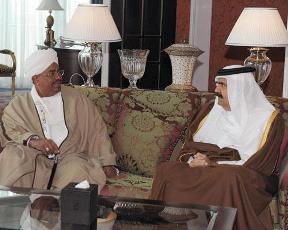Sudan may get much needed economic help from Qatar
March 7, 2012 (KHARTOUM) – The Arab Gulf state of Qatar will soon send a team to Sudan in order to discuss investing up to $2 billion, it was reported today.

Sudan foreign minister Ali Karti said talks between the two leaders tackled bilateral ties and implementation of the Darfur agreement signed in Doha last year.
Qatar’s Emir expressed willingness to visit Sudan and vowed to help economically “to the furthest extent”, Karti added.
Bashir took part in the ‘Connect Arab 2012’ conference hosted by Qatar this week.
QNA said that the investments will include “the purchase of treasury bonds issued by the Sudanese government and investments in different sectors particularly mining, oil, agriculture and services”.
Last month there were numerous reports by local media about an imminent Qatari $2 billion loan though Sudanese officials gave conflicting statements on the existence of such a loan. The report nonetheless has helped halt the recent downward trend in the exchange rate of the Sudanese pound against the dollar in the black market.
At the time a dollar bought 5.2 Sudanese pounds, compared to 3.3 in July, dealers said. The official rate is around 3. It is now at 5.
As the government lost access to 75% of oil reserves after the south seceded, the influx of hard currency has been severely curtailed forcing the Central Bank to be extra prudent with its available foreign exchange reserves.
Demand for the dollar, and controls on the official exchange rate, have turned the black market rate into a benchmark. Even large companies have started trading money there, meeting dealers in derelict shops to dodge security.
Sudan’s tense relations with the west and lack of enthusiasm by rich Arab countries have limited Sudan’s venues for obtaining immediate economic help. Furthermore, Sudan’s crippling $38 billion external debt makes lenders hesitant to extend further credit to the East African nation.
Last month, Finance and National Economy Minister Ali Mahmood complained that Sudan pays $600 million in debt repayments to Arab sovereign funds which he said is a tiny fraction of the overall external debt with interest.
(ST)
